Whakapapa, hītori me te whakawhanaungatanga - Ancestory, history and relationship building were at the heart of our PD day at Ōtākou Marae last week.

Tahu Pōtiki!
Maraka maraka!
On Friday 21st March, approximately 70 staff, Māori students and their whānau all travelled to Ōtākou Marae to enjoy a day of learning about mana whenua, our whānau the history of Ōtakou and Te Tiriti, the Ministry of Education's view of the path to Partnership, Participation and Protection. We were welcomed with a korowai of manaakitanga and support. Topped off with a sparkling Ōtākou harbour and warm sunshine.
We were hosted by the amazing team from Ōtakou Rūnaka and the Ministry of Education, led by Whānau Engagement Liaison Amie Curtis. We are forever grateful for the huge effort that went in from the team to host us and prepare a day of learning and whakawhanaungatanga (getting to know one another). So much learning occurred and the discussions have opened up the pathways for more learning and relationships to be fostered.
Highlights include learning of the history of the Kāi Tahu claim and the relationship with Japan, the tour of the museum and surrounding grounds of the marae and of course seeing all our staff, whānau and students stand to give their pepeha (some for the first time). Special mention must also be made to Lisa Te Pana and Dan Houghton who were our kaikaranga and kaikōrero.
We look forward to continuing to build our relationship with Ōtākou, mana whenua and our whānau as we broaden and shape our knowledge, our strategic plans and curriculum teaching to reflect this learning.
It was a wonderful day. We are incredibly appreciative to those that have worked behind the scenes to provide such an opportunity as a staff and as a wider school community. We look forward to the next steps in our journey.
For those whānau and Māori students who could not join us this time we hope to do something similar in the future and we of course welcome all our whānau of Māori students to join us at the next whānau hui (details will be out early Term 2).



 Open Event Registration - Interested in enrolling?
Open Event Registration - Interested in enrolling? Employment opportunities - click if you're interested in working at McGlashan.
Employment opportunities - click if you're interested in working at McGlashan.